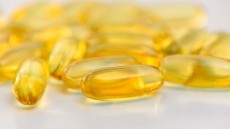Vitamin E in pecans may reduce LDL oxidation
found a recent study, likely due to the nut's high vitamin E
content.
Researchers at Loma Linda University in California linked pecans to slowing down the unwanted oxidation of blood lipids by up to 7.4 per cent, in turn potentially lowering the risk of heart disease.
Pecans are especially rich in a form of vitamin E, gamma tocopherol, which is thought to protect fats from oxidation.
Heart and circulatory disease is the UK's biggest killer, according to the British Heart Foundation. In 2002, cardiovascular disease caused 39 per cent of deaths in the UK, killing almost 238,000 people.
"These data provide some evidence for potential protective effects of pecan consumption in healthy individuals," concluded Dr Ella Haddad, lead author and researcher at the Seventh-day Adventist institution's School of Public Health. The study is published in Nutrition Research (volume 26, issue 8, August 2006, 397-402).
A growing body of evidence links oxidized LDL, or "bad", cholesterol, to atherosclerosis, arterial blockage and heart attacks or strokes. As such, the more resistant LDL cholesterol is to oxidation, the less likely it is to cause these health problems.
"We found that eating pecans increased levels of gamma tocopherol concentrations in the blood and subsequently reduced a marker of lipid oxidation," said Dr.Haddad.
The Loma Linda University researchers analyzed blood samples from 23 men and women between the ages of 25 and 55. The participants were randomly placed on either the American Heart Association's Step I diet or the study's pecan-enriched version of the diet in which 20 per cent of calories were replaced with pecans.
After four weeks on one diet, each group switched to the other diet.
"We concluded that even though the pecan diet was high in unsaturated fats, which one may think would increase blood oxidation, that did not happen," said Dr.Haddad. "We found the opposite result: the pecan diet showed reduced oxidation of blood lipids."
Upon analysis of the blood samples, the research team found the pecan-enriched diets reduced lipid oxidation by 7.4 per cent versus the Step I diet.
They also found blood levels of tocopherols were higher after participants were on the pecan diet. Cholesterol-adjusted plasma gamma-tocopherol in the study participants' blood samples increased by 10.1 per cent (P < .001) after eating the pecan diet.











